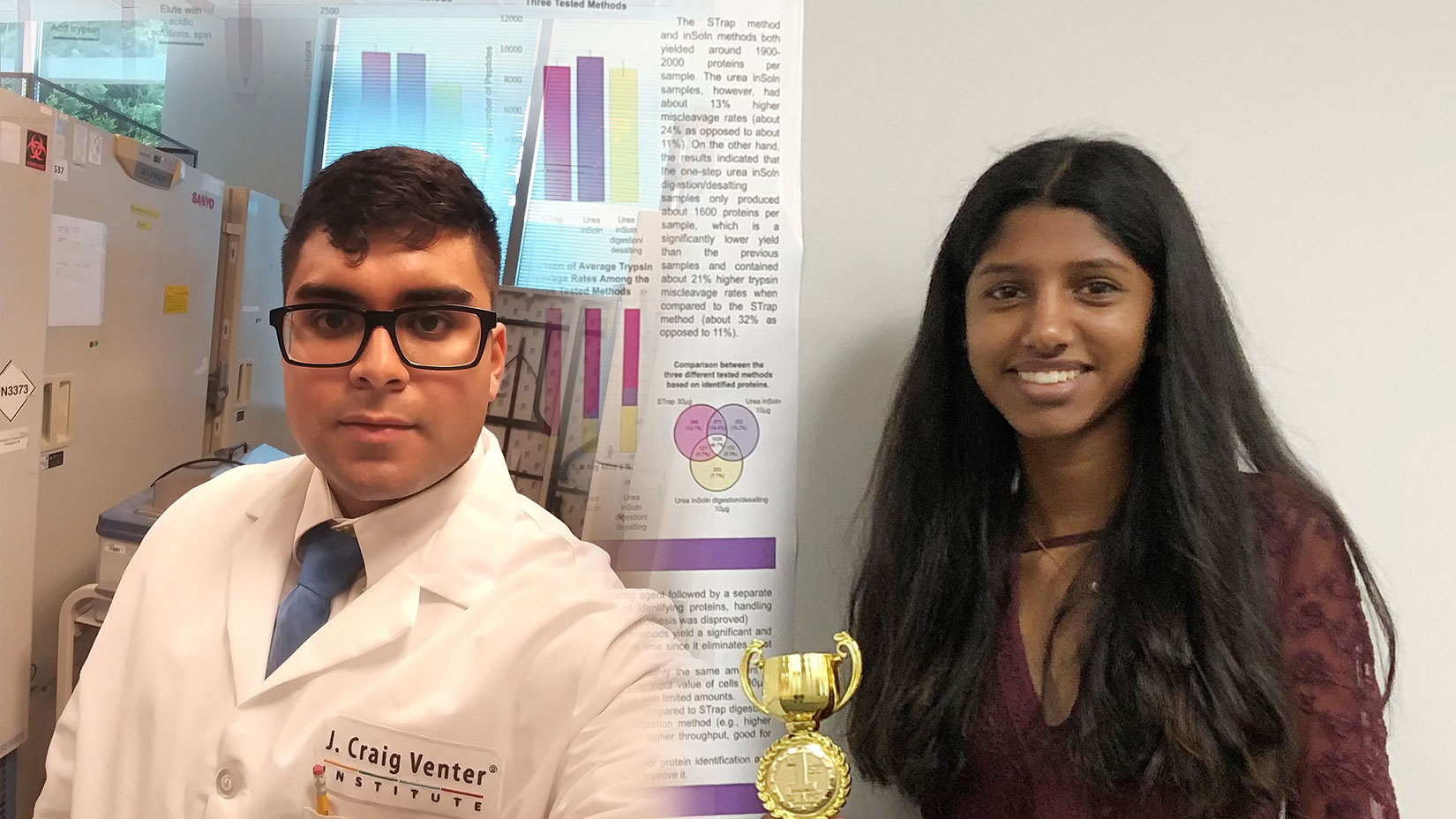JCVI Scientists and Interns Dramatically Trim Proteome Analysis Costs with New Lab-on-a-Filter Process

Through a happy accident and a keen mind, JCVI intern Rodrigo Eguez realized scientists might be able to pack their own filters rather than rely on those produced commercially at a significant cost savings. While playing around in the laboratory, he inadvertently disassembled a filter device used to prepare samples for proteomics analysis, an important tool in biomarker discovery.
Another Intern, Isha Vashee helped expand on this work, testing different types of membranes for filtering. Together, their results showed this new technique for filter packing could be broadly applied to proteomic sample processing. Along with JCVI senior scientists Yi-Han Lin and Yanbao Yu, the team was able to refine this process, recently publishing their results in Methods in Molecular Biology.
The impact is clear: the cost of consumables is a huge driver in the biological sciences. This new lab-on-a-filter platform, used to process samples for mass spectrometry analysis, can be done more economically and conveniently than before. Previously, scientists needed to purchase commercial products at 50 to 100 times the cost per sample.
The new method has proven to be more flexible and as efficient, while maintaining the same analytical performance of similar commercial products. Cost savings will be significant, especially when processing hundreds of samples, which is quite common for clinical biomarker screening.
Mass spectrometry-based shotgun proteomics is a powerful tool to study proteins—including their quantities, modifications, and functions—in a large scale and systematic manner. It is also a driving force of modern clinical biomarker discovery as it can detect minor changes of proteins under pathological conditions, which may serve as indicators for early diagnosis of a variety of diseases.
However, biological samples cannot be measured directly by mass spectrometry. They first need to be lysed and denatured, have salts, detergents, and other impurities removed, and then digested by proteolytic enzymes to produce smaller fragments (i.e., peptides). This is a typical shotgun (or bottom-up) proteomics approach. These pre-processing steps play an important role in data quality and are critical for the entire biomarker discovery pipeline.
The development of such a lab-on-a-filter platform has great impact on general biological sample processing, clinical proteomics, as well as the biomarker discovery industry as it significantly lowers the barriers for using the filter-based techniques for sample processing. The platform also leverages existing filter-based technologies and opens a new window for developing novel applications for therapeutics and diagnostics.
Rodrigo first joined JCVI in May 2014 from Montgomery College (Maryland) as an intern through the Genomics Scholars Program (GSP), which was funded by National Institute of Diabetes and Digestive and Kidney Diseases of the National Institutes of Health. He later transitioned to a biology major at The University of Maryland where he completed his bachelor’s degree.
Rodrigo was rehired by JCVI as a lab assistant between February 2018 and June 2020 where he continued to hone the filter packing technique. He has co-authored four publications with JCVI to date. He is now a research associate at a local biotech company in Rockville, Maryland.
Isha Vashee joined JCVI during the summer of 2019 as an intern. She is currently a freshman in the Honors College at the University of Maryland, College Park.